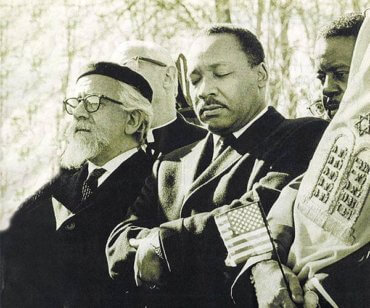
How Do We Know There’s A World To Come?
Hi JITC-
I grew up religious but haven’t kept Shabbos in ten years. How do I know that there is a World to Come if no one has ever returned? Keeping Shabbos does not make me feel better or more holy, why is it important for me to keep it?
Thanks,
N.T.
Dear N.T.-
Thanks for your question. You don’t need to satisfy yourself that there’s an Olam Haba (World to Come) so much as you should satisfy yourself that there’s a God. Once you’ve done that, the ramifications – such as the existence of an afterlife – will fall into place.
Actually, satisfying ourselves that there’s a God is one of the aseres hadibros. (These are commonly known as the “Ten Commandments,” though there are really more than ten commandments in those ten statements.) The very first of these is “I am Hashem your God, Who brought you out of the land of Egypt, out of the house of bondage. (Exodus 20:2).” What kind of commandment is “I am…?” It’s understood as an obligation for us to know that there’s a God.
The Rambam’s magnum opus is called the Mishneh Torah, a 14-volume work comprising 15,018 halachos. And the very first of these, in Hilchos Yesodei HaTorah 1:1, is:
“The most basic premise and the foundation of all wisdom is knowing that there is a Creator Who brought the universe into being. Every creature in the heavens, on the earth, and everywhere in-between only exists because of this Creator.”
You’ll note that our obligation is not just to believe in God, but to know that there’s a God. This is a thing that we must research for ourselves until we are intellectually satisfied. (See more here.)
As far as how we come to know this, everyone is different. Some people look at nature. They see, for example, that the human eye is more complicated than any camera ever invented. If you would never believe that an iPhone could evolve naturally, how could you assume that about our eyes, which are many orders of magnitude more advanced? The same is true when we look at the wisdom of the strawberry, whose seeds are on the outside, and the watermelon, whose seeds are on the inside, each perfectly suited to perpetuate that particular species.
Some people are moved by things like the “Torah codes.” Known as Equidistant Letter Search and nowadays performed by computers, the “Torah Codes” actually represent an ancient method of Torah interpretation called dilug osiyos (letter skipping) in which words can be found encoded within the text, many defying statistical probability. One of my favorite examples involves the search for Yoseif’s goblet in parshas Mikeitz. The Hebrew word for goblet is geviyah (gimmel-veis-yud-ayin). The word geviyah is only encoded one place in the entire book of Genesis. It can be found in eight-letter intervals in Genesis 44:12 – “He searched, beginning with the eldest, and ending at the youngest. The cup was found in Benjamin’s sack” – the very verse describing the search for the missing cup!
Others are most impressed by the continued existence of the Jewish people, despite any historical precedent for a nation to be constantly exiled and still endure, let alone thrive. Counterintuitively, the Torah foretells that the Jews would be exiled, persecuted, and perpetually a small nation, but that we would always endure. This goes counter to the experience of any other nation in history and yet that’s exactly what has come to pass!
There are many other approaches that one might take based on their own personal interests and individual temperament. Any number of things in this world could satisfy a person that there’s a God. But there’s never going to be concrete proof. God always gives those who want to “opt out” the justification to do so. As it says in Bereishis Rabbah 5:8, God puts the evidence in front of us; if people want to willfully ignore the logical conclusions, He gives them the ability to do so. To force belief on someone would be to deny them their free will.
Non-Jewish authorities have also grappled with the issue of determining that there’s a God. They have come up with different approaches that largely boil down to “hedging one’s bets.” Let us consider, for example, Pascal’s wager, named for 17th-century mathematician Blaise Pascal. In it, he determines mathematically that it’s in one’s own best interest to assume there’s a God and to act accordingly because the consequences of being wrong outweigh any possible benefit. (Basically, he posits that if there’s no God but you live as if there is one, you miss out on a finite number of things in life. However, if there is a God and you act as if there isn’t, you’re forfeiting an infinite reward. Any effort is worth the investment for the possibility of an infinite payout.)
Along similar lines, 20th-century philosopher Albert Camus wrote, “I would rather live my life as if there is a God and die to find out there isn’t, than live as if there isn’t and to die to find out that there is.”
There are many fine books that can help you with this. I’d like to recommend Permission to Believe by Rabbi Dr. Lawrence Kelemen, followed by his other book, Permission to Receive. The former is subtitled “Four Rational Approaches to God’s Existence,” and that’s exactly what it is. That latter is subtitled “Four Rational Approaches to the Torah’s Divine Origin” and it illustrates how believing in the revelation at Sinai actually makes more sense than trying to explain it away.
Once you have satisfied yourself that there’s a God, keeping Shabbos should be an obvious next step. We can speculate on God’s reasons for giving us Shabbos – to disconnect from the world and recharge our batteries, to have an opportunity to get closer to Him, etc. – but ultimately it doesn’t matter. If we recognize that there’s a Creator (God) and that He gave us a user’s manual (the Torah), then we accept that Shabbos comes under the category of “required maintenance” whether we understand how it works or not.
There’s a familiar Talmudic dictum, “mitoch shelo lishma, ba lishma” – “if one performs a mitzvah for an ulterior motive, he will ultimately come to perform it sincerely (Pesachim 50b). Similarly, I think that if a person observes Shabbos because he accepts that there’s a God Who told us to do this because it’s somehow for our benefit, he will ultimately come to appreciate what Shabbos has to offer.
Sincerely,
Rabbi Jack Abramowitz
JITC Educational Correspondent
Follow Ask Rabbi Jack on YouTube
If you found this content meaningful and want to help further our mission through our Keter, Makom, and Tikun branches, please consider becoming a Change Maker today.








1 comment
Sort by
I would argue from the idea that concepts are eternal. “1 + 1 = 2”, always, eternally. And it will never cease to be true that “It was sunny in Passaic NJ at 1:11pm EDT on Une 8, 2021 CE”. (Even if it may need translation as time measurement norms or the language evolves.) It may stop being sunny, but that fact that it is sunny right here right now is eternal.
Our souls are made of concept “stuff”. My collection of thoughts and feelings are a collection of things that don’t and can’t disintegrate. So how can their sum — me?